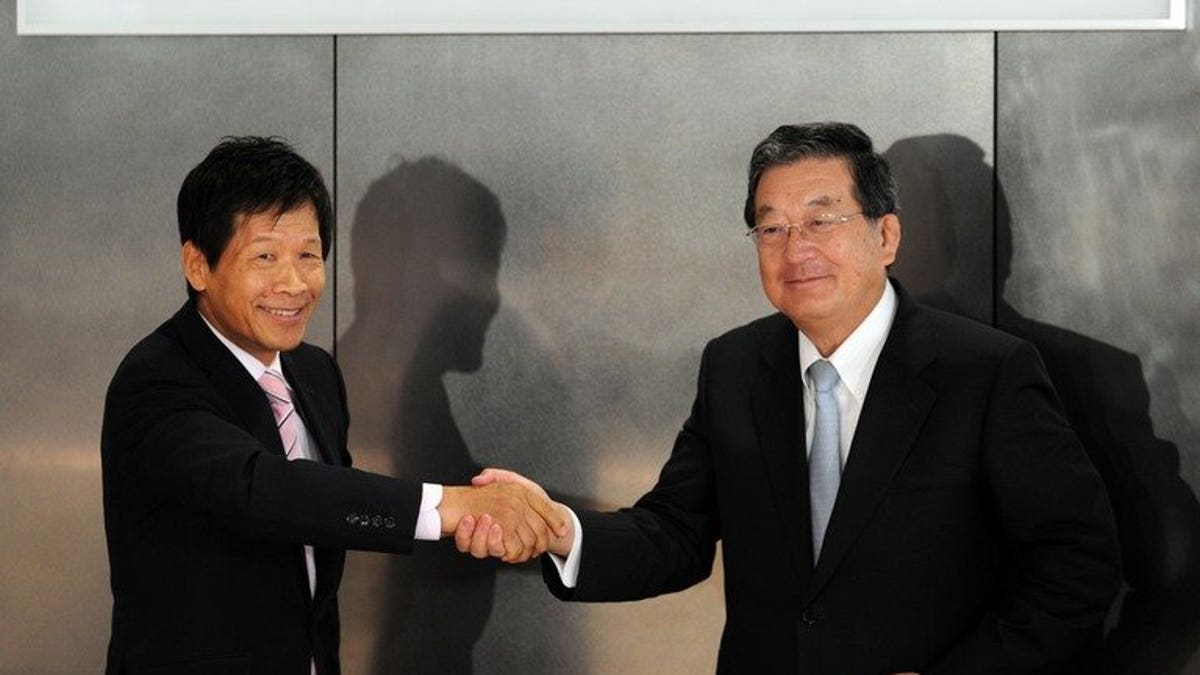
Illustration: Nippon Steel and Sumitomo Metal chairman and CEO Shoji Muneoka shakes hands with president Hiroshi Tomono as they unveil the company's plaque in Tokyo on October 1, 2012. Nippon Steel, which last year merged with Sumitomo, is being sued by four South Korean wartime slave workers. (AFP)
TOKYO, Japan (AFP) – A Japanese steel giant sued by South Korean wartime slave workers is ready to pay compensation if it loses a long-running legal battle abroad, Japanese media reported on Sunday.
Last month the Seoul High Court ordered Nippon Steel to pay a total of 400 million won ($360,000) to four victims as compensation for unpaid salaries and mental suffering before and during World War II.
Nippon Steel, now renamed Nippon Steel & Sumitomo Metal following last year's merger with Sumitomo, has appealed against the ruling to South Korea's top court.
But the world's second largest steelmaker behind India's ArcelorMittal has said it is ready to pay the damages if the South Korean Supreme Court upholds the previous ruling, the Sankei Shimbun reported.
"It is difficult to ignore a final decision as it can affect our business partners there," an unnamed senior official of the Japanese company said, according to the daily.
Kyodo News also reported that if the court upholds the ruling, "We, as a global company, can't help but accept it," one of the sources said.
An immediate confirmation of the reports was not available.
Last month's decision marked the latest chapter in a 16-year legal battle launched by the four South Koreans, now aged in their eighties and nineties, who were drafted to work for the predecessor of the Japanese firm before the war.
Yeon Un-Taek and three other forced labourers filed their first compensation suit in Japan in 1997, but it was dismissed by the country's top court.
They launched a separate action in South Korea in 2005.
Japan's brutal colonisation of the Korean peninsula from 1910 to 1945 saw some 780,000 conscripted into forced labour, excluding women who were forced to work in wartime brothels, according to South Korean official data.
The two issues have remained major points of contention between the neighbours, who are now key trading partners.
The company has said the decision ignores a 1965 treaty which saw Seoul and Tokyo restore diplomatic relations. It included a reparations package of about $800 million in grants and cheap loans.
